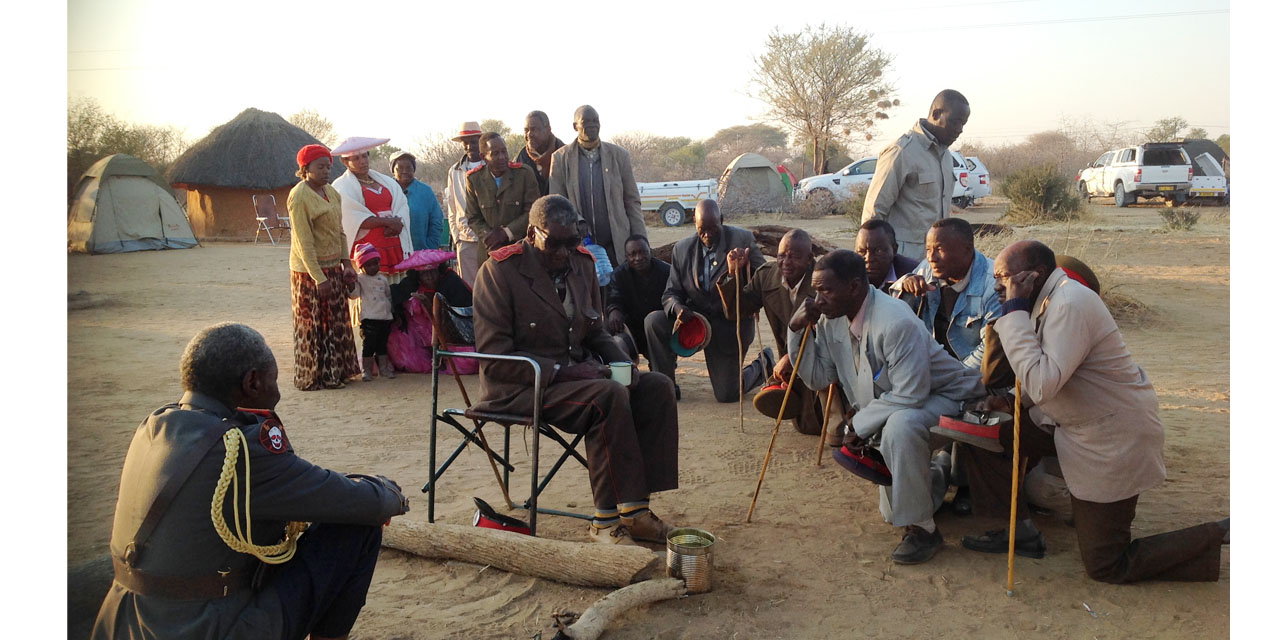Staff Wrter
Ovambanderu, Ovaherero and Nama descendants must use sacred days, such as 12 August, which is the day of the beginning of the war of resistance against Imperial Germany at Ohamakari in 1904 to reflect on their journey this far.
The Battle of Ohamakari will be commemorated this weekend in Okakarara, 118 years after. The Ovaherero and Ovambanderu Genocide Foundation (OGF) Interim Chairperson, Mbakumua Hengari, says in statement to mark and observe the day that it must be the beginning of a serious reflection by the descendants of genocide. This is to chart the way forward in view of the fact that negotiations between the Namibian government, and its counterpart of the Federal Republic of Germany, which a section of the descendants for that matter has not been part of, have now been in limbo. Thus, starting with the 118th anniversary of the Battle of Ohamakari, the onus is now upon the descendants of the victims of genocide to continue with the campaing seeking the German government to acknowledge their genocide.
“This must be a catalyst for such a recalibration and a new vigorously refreshed upsurge legitimately driven by the affected communities and their allies, including our own Namibian government,” says Hengari imploring his government to “desist from its myopic hegemonic and parochial arrogance in the cause of the acknowledgement of genocide against its indigenous citizens by Imperial Germany”. Not only with the commemoration of Ohamakari but “all sacred days of the affected communities and their commemorations, must from now serve this purpose of recalibration”, he adds.
Equally important, such days must also serve as remembrance days, thereby memorializing the genocide in view of the fact that Namibia does not have any genocide memorials let alone remembrance day. Because even the Genocide Remembrance Day that has been proposed since 2016, is yet to be realised. “Our Namibian government evidently and empirically, has deliberately been sweeping the momorialisation of our genocide under the carpet,” albeit Hengari. One telling fact being that even the Independence Memorial Museum does not reflect the history of genocide. This is despite the fact those who died in the wars of resistance, were the progenitors of the latter day Namibian liberation struggle.
“There are many shrines epitomising this genocide, and the memorialization thereof, but this has solely been left and conveniently shoved off to the affected communities themselves, with the Namibian government having ever shown any political will to elevate them to the historic national memorialisation that they epitomise and deserve,” says Hengari.
As part of the beginning of the process of recalibration by the affected communities, Hengari welcomes the Genocide Stakeholders Engagement, to be hosted by chiefs Tjinaani Maharero and Manasse Zeraeua in Omatjete this weekend lauding such an indaba as more crucial than ever. The OGF interim chairperson has also been invited to the engagement as well as Ovaherero and Ovambanderu traditional leaders, among other genocide affected stakeholders.




